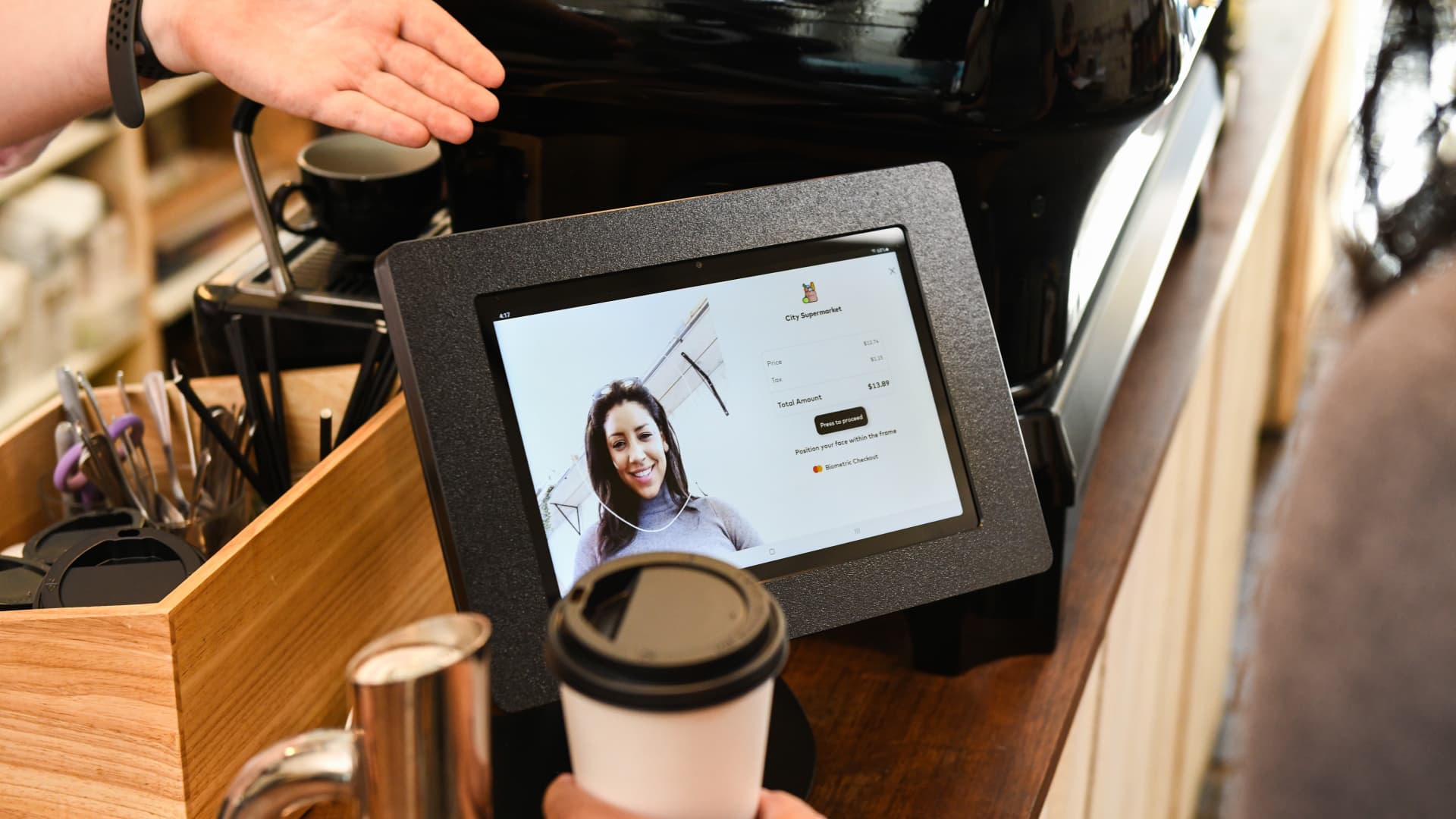
Mastercard’s biometric checkout technology lets users pay by scanning their face or palm.
Mastercard
Mastercard is piloting new technology that lets shoppers make payments with just their face or hand.
The company on Tuesday launched a program for retailers to offer biometric payment methods, like facial recognition and fingerprint scanning. At checkout, users will be able to authenticate their payment by showing their face or the palm of their hand instead of swiping their card.
The program has already gone live in five St Marche grocery stores in Sao Paulo, Brazil. Mastercard says it plans to roll it out globally later this year.
“All the research that we’ve done has told us that consumers love biometrics,” Ajay Bhalla, Mastercard’s president of cyber and intelligence, told CNBC.
“They want making a payment at a store to be as convenient as opening their phone.”
About 1.4 billion people are expected to use facial recognition technology to authenticate a payment by 2025, more than doubling from 671 million in 2020, according to a forecast from Juniper Research.
How does it work?
To sign up on Mastercard, you take a picture of your face or scan your fingerprint to register it with an app. This is done either on your smartphone or at a payment terminal. You can then add a credit card, which gets linked to your biometric data.
It’s similar to tech that’s being trialed by Amazon in the U.S.
Mastercard says it plans to bring the program to the U.S., Europe, the Middle East and Asia at a later date.
In the long run, Mastercard’s vision is to make the tech “globally interoperable,” Bhalla said. “So once you’ve stored your credentials, you could use this anywhere.”
The feature could integrate with loyalty schemes and make personalized recommendations based on previous purchases, Mastercard said.
Is it safe?
The use of biometric information for payments raises a host of concerns around privacy and how the data gets collected
For its part, Mastercard says all the data customers enter into its system is encrypted in such a way that ensures their privacy isn’t compromised.
When you enrol, your face or fingerprint scan is replaced with a “token” — a random string of alphanumeric characters — and then linked to your payment card.
Mastercard said it has created a set of standards to ensure users’ data is protected. The company is working with several other firms to launch the feature, including Fujitsu, NEC, Payface, Aurus, PaybyFace and PopID.
Preparing for the ‘metaverse’
Mastercard’s biometric tools could one day help with the development of payments infrastructure for the “metaverse,” according to Bhalla.
“What we are working towards is the metaverse,” he said.
The metaverse refers to a hypothetical virtual world where users can work, trade or socialize. The term has attracted lots of buzz in Silicon Valley thanks to Facebook’s rebrand to Meta last year.
At a media briefing in London, Mastercard showed off an augmented reality headset that warns the wearer if they’re on a potentially fraudulent e-commerce site. Another feature the firm is experimenting with allows users to select and buy items at a virtual store using nothing but their eyes.
These products are farther from reality than Mastercard’s biometric checkout service, but give a flavor of what to expect in the future.
Bhalla said people could eventually try on some clothes virtually before buying, or link their non-fungible tokens — digital assets that record ownership of a virtual item on the blockchain — with their biometric identity.






